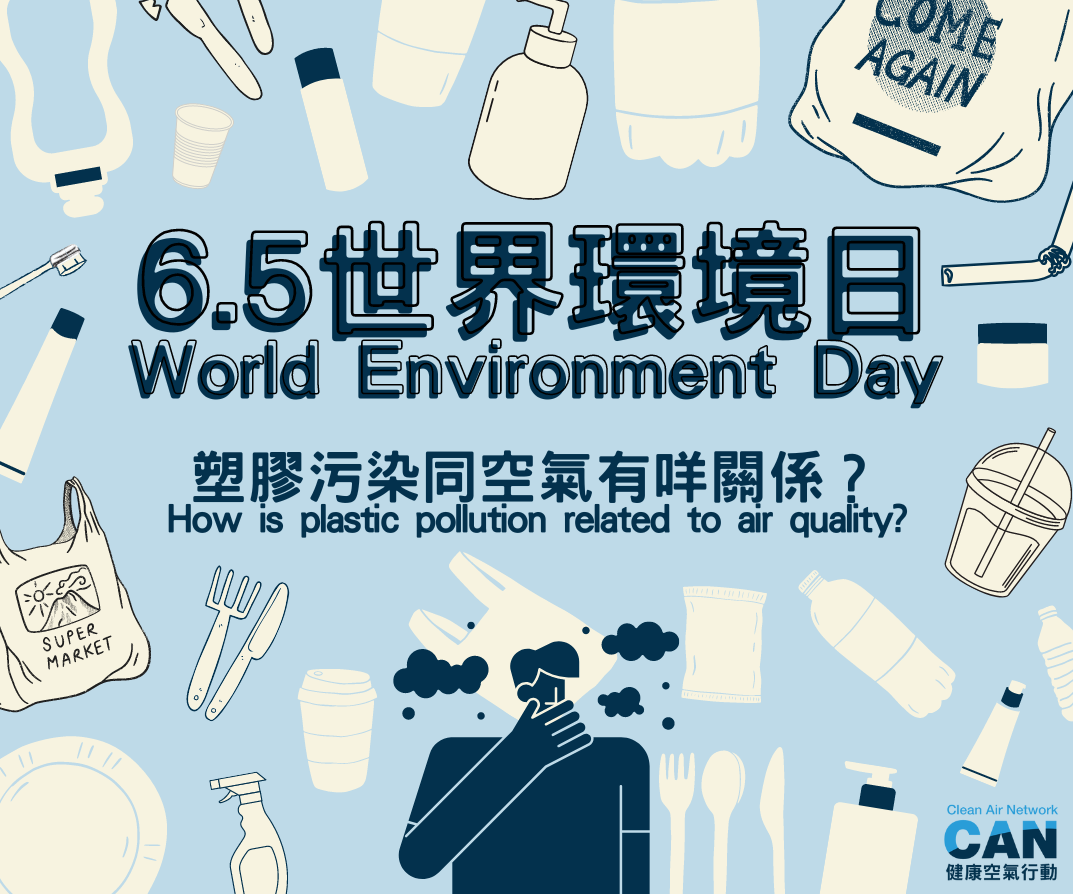
World Environment Day: How is plastic pollution related to air quality?
World Environment Day is held annually on 5 June by the United Nations. This year, hosted by Côte d’Ivoire in partnership with the Netherlands, the event is marking its 50th anniversary. Under the theme of #BeatPlasticPollution, it calls for solutions to plastic pollution.
Each year we produce millions of tonnes of plastic, half of which has only been used once; and of that, more than 90 per cent is not recycled. In Hong Kong, plastic waste accounts for over 20% of the solid waste at landfills, ranking second among all types of waste, and the quantity has increased in recent years, reflecting that recycling and plastic reduction policies are not yet in place to effectively address the problem.
We all know that plastic waste pollutes the environment, but what does it have to do with air quality?
- Burning plastic emits toxicants: Improper disposal and inadequate waste management practices lead to the burning of plastic waste in many regions. This process releases toxic gases and particulate matter into the air. Harmful pollutants like dioxins, furans, and volatile organic compounds (VOCs) are emitted, compromising air quality and posing health risks for both humans and ecosystems.
- Microplastics: Through weathering and degradation, larger plastic items break down into minuscule particles. These microplastics can become airborne and travel through various mechanisms such as wind dispersion and industrial processes. Inhaling these particles may lead to respiratory issues and other health concerns.
- Plastic production and emissions: The production of plastic materials relies heavily on fossil fuels. The extraction, refining, and processing of crude oil and natural gas release greenhouse gases (GHGs) into the atmosphere. These GHGs, including carbon dioxide and methane, contribute to global warming and air pollution. Additionally, the transportation and distribution of plastic products generate emissions further exacerbating the environmental impact.
Plastics can cause air pollution and pose danger to our health. To tackle this problem, the efforts of the community, businesses and the government are essential, and everyone’s small step is also very important. Reducing waste and minimizing the use of disposable plastic products in our daily lives will help to protect the environment, slow down global warming and reduce air pollution. On this World Environment Day, let’s pledge to reduce the use of plastic and improve air quality!

